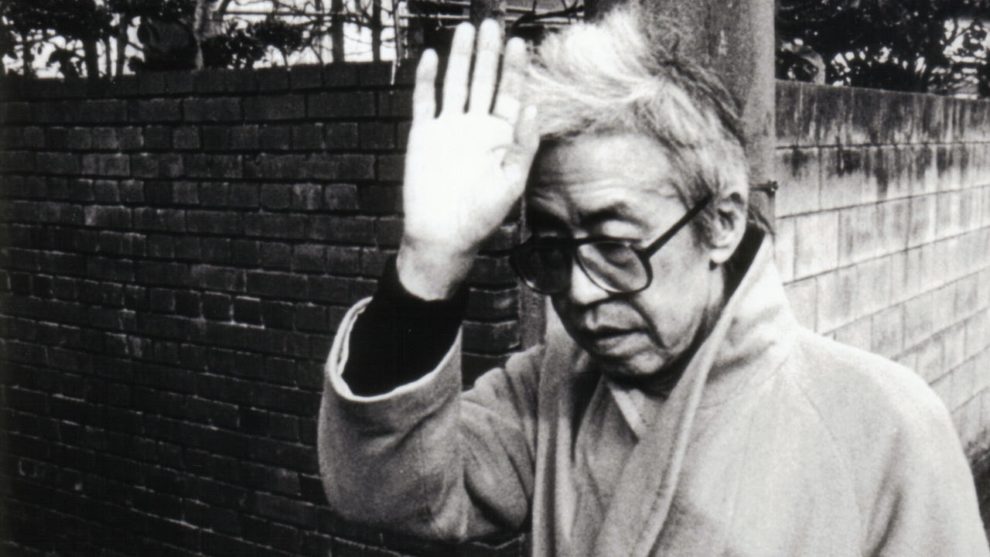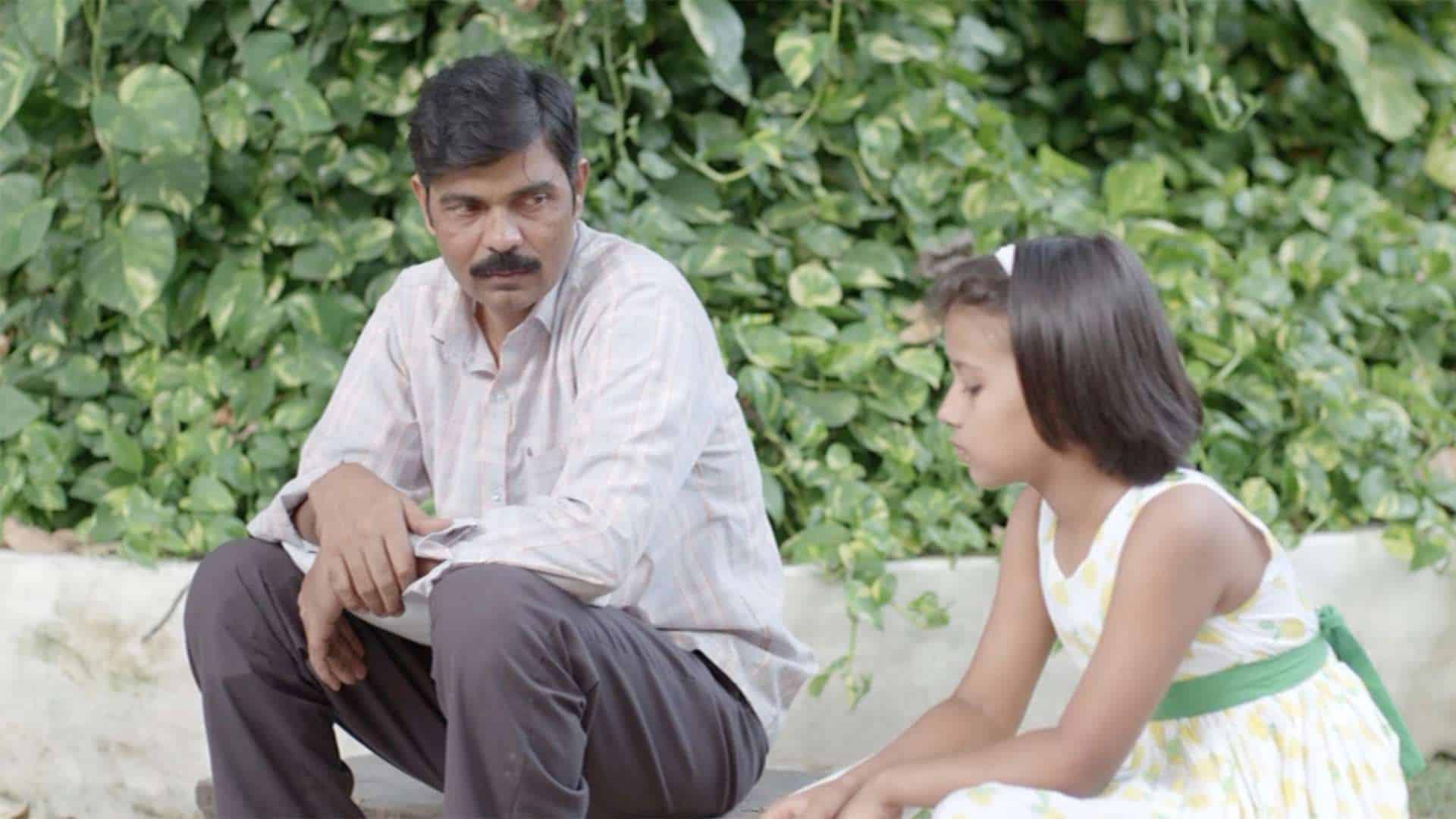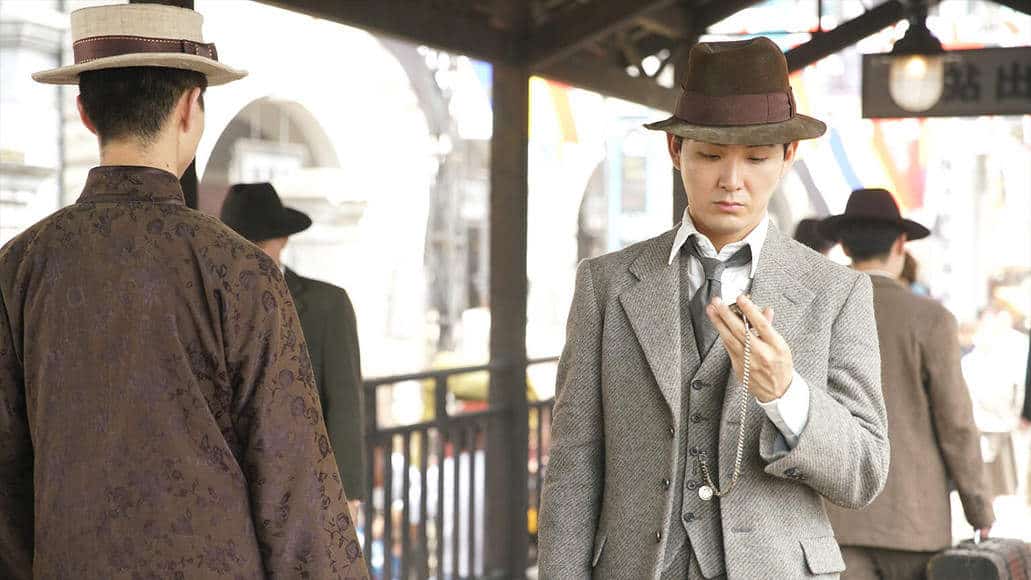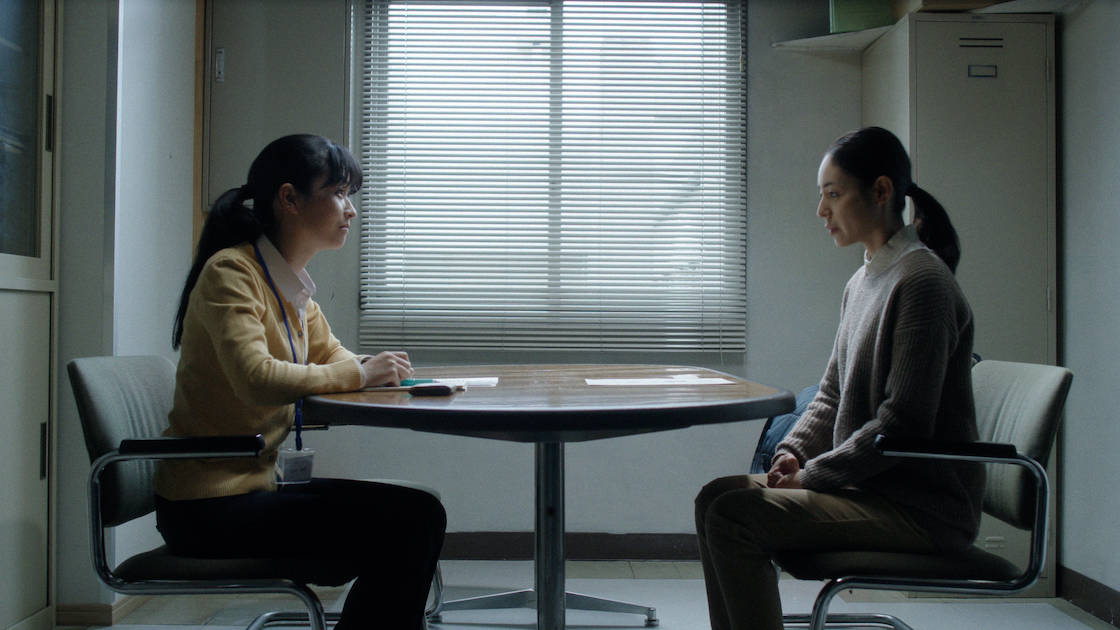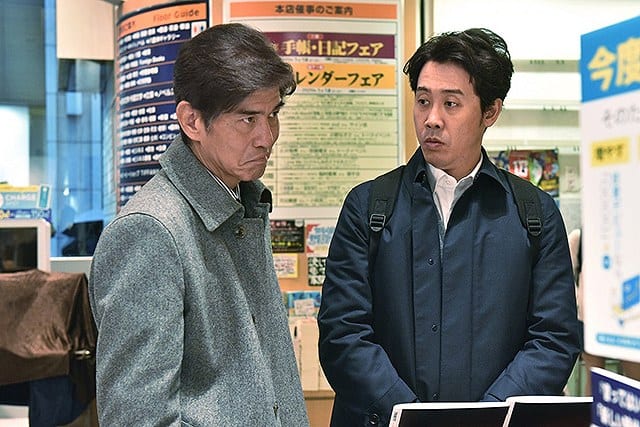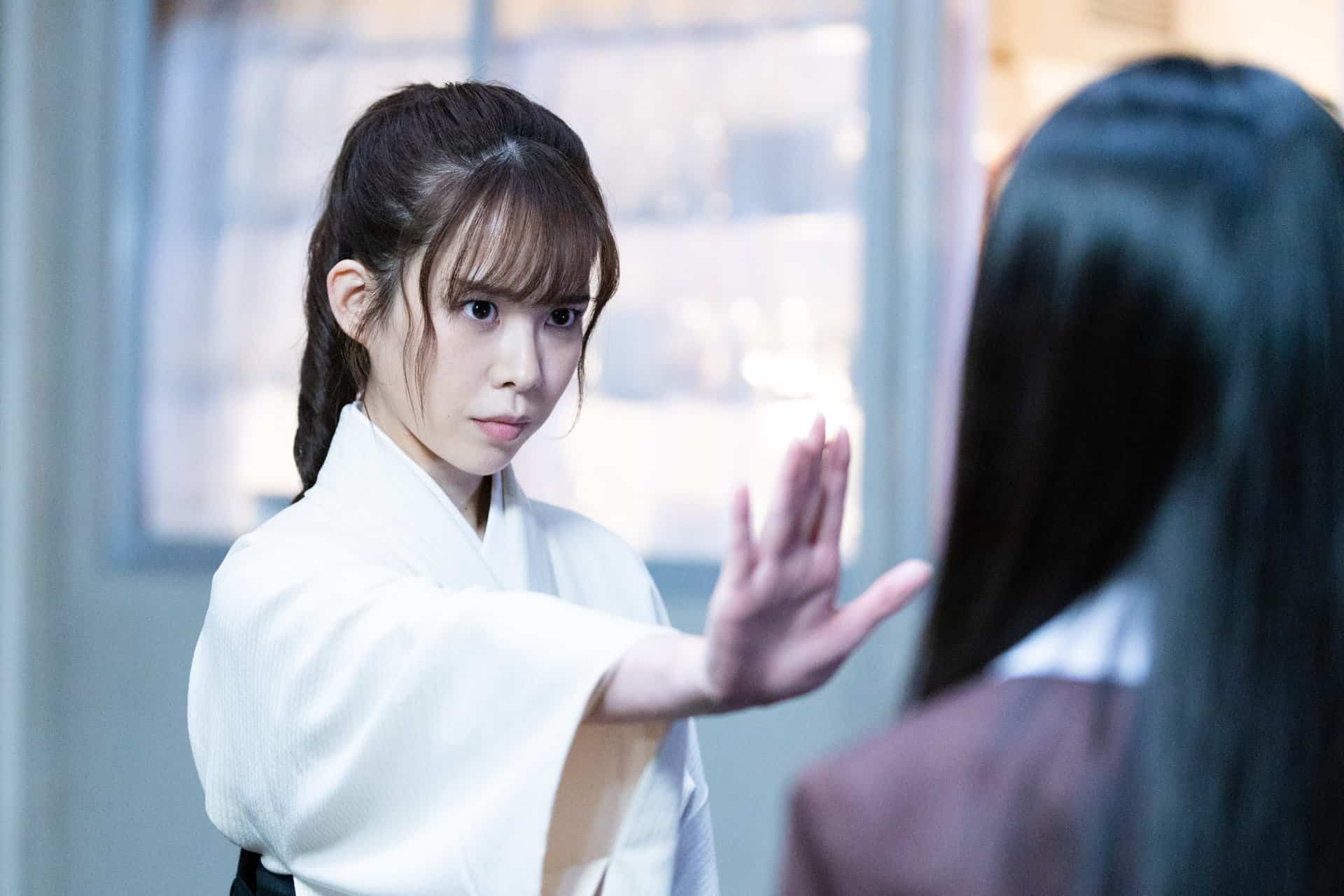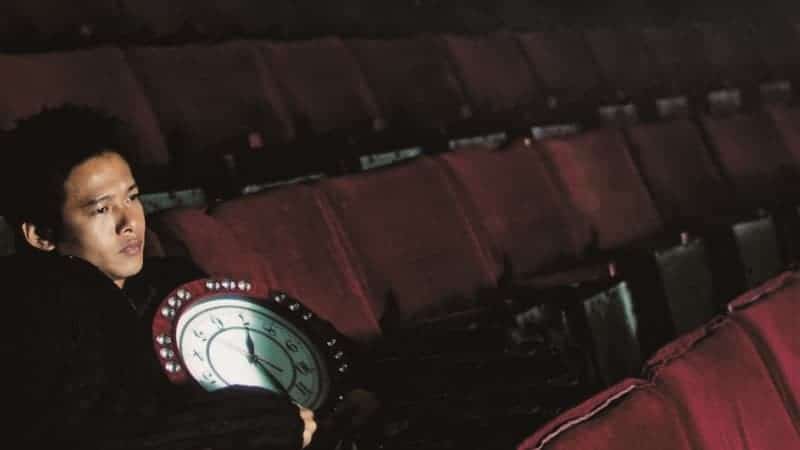Following on from his crowning glory “The Emperor's Naked Army Marches On”, Kazuo Hara travelled around Japan with another determined figure, but one facing an altogether different battle. Mitsuharu Inoue wasn't as well-known a novelist around the world as some of his peers, but certainly had his admirers in Japan. Certainly charismatic, “A Dedicated Life” paints a portrait of a man living in a world of contradictions and inconsistencies, with his life itself his greatest work of art.
A Dedicatd Life is screening at Japan Society

Within the opening fifteen minutes, Hara shows a man of many talents: a showman, an extrovert, a flirt, a performer, a charismatic anecdotalist, a powerful talker and a man who can become intensely angry at the drop of a hat. A stereotypical struggling artist, Inoue lives with his wife in a modest house surrounded by books and regularly visited by learned friends and students.
With an extended runtime, Hara let's Inoue do the talking, editing down his many lectures, lessons and gatherings to share his viewpoint on what makes a writer. From these, we can gather that he is a man who cherishes his freedom, particularly as he gets older, giving examples from his works. What he believes makes a writer is a life that has been lived, going through the depths of pain before you can even pick up a pen, with age giving the experience and freedom to live your life outside of the rules.
Inoue's story is that of a hard life. Born in Manchuria, his father and mother abandoned him and so he returned to Japan with his sister to be raised by his grandmother. Near Nagasaki, he worked in a coal mine and learnt some harsh life lessons. His life – with an endless string of female admirers following him along the way – therefore, seems like a lonely one of struggle to find a mother's love. This loneliness is hidden behind a life dedicated to teaching and his writing: a life of passion.
His diagnosis of liver cancer doesn't appear to slow his vigour down. He states he doesn't want to use it as source material and keeps on with his work, despite the extensive surgery he has to have, which Hara shows in all its bloody detail. But while Inoue doesn't want it to be a complete changing point for his life, Hara uses it as a changing point for the documentary.
On returning to his childhood home, talking heads with friends and family reveal Inoue's life isn't quite how his autobiography would have you believe. In a clip from a lecture, Inoue states how even the truth is fictionalised as we don't reveal all in what we tell; some things will remain hidden. Fictionalising reality is something at which Inoue excels. His grandmother called him “The Liar” as a child, so inventing stories isn't just his occupation.
How much of what he said is true? His family and friends suggest many points are not. Was he born in Manchuria? Was he part Korean? Was he the grandchild of a great kabuki actor? Did he give up on reconciliation with his mother? We may never know. But Inoue chose it to be, and so his greatest work of fiction became his life story.
Dedication can also be labelled at his wife. While not given much of a voice, she appears in most shots alongside Inoue; and one of his followers states how the freedom he so cherished was afforded him by his “obedient” wife. It may be a life Inoue has created, but he has been allowed to by her.
Hara switches the narrative of his life story with expert timing: painting a full picture, before pulling it away from our eyes to reveal a “truth.” But he is not criticising his subject. He allows him to explain himself, showing that these are not mere lies but a life's work of creative genius. Hara simply allows the camera to roll and let what is seen speak for itself.
As Hara documents until the end, the conclusion of Inoue's life work wasn't decided himself. If what came before was fiction, the finale is very real. But Inoue seems prepared for it. Many things will happen to many people, but we can all choose our own story.


